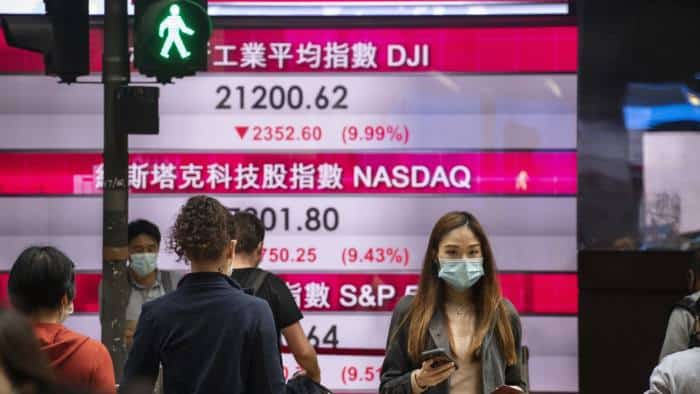Declining remittances alone could wipe $660 billion from the global economy, Bloomberg reported today. The International Labor Organization forecasts coronavirus curbs such as non-essential business shutdowns and travel restrictions will cut working hours by 6.7% globally in the second quarter of 2020.
In the face of past economic shocks, such as natural disasters, remittances have generally remained steady. The global nature of COVID-19 and its impact on sectors traditionally filled by migrant workers, such as the hospitality industry, “upends the wisdom about remittances being very stable,” said Institute of International Finance economist Elina Ribakova.
“Some of the largest remittance-sending countries—the United States, Switzerland, Germany, France, and Italy—are locked down by the COVID-19 pandemic, and service sector jobs have been hard hit from outset of the health crisis,” the World Bank explained.
“While large—global remittances peaked at $706 billion in 2019—this safety net is now frayed by job losses in the service sectors most reliant on migrant workers and shutdowns that fail to recognize remittance agents as essential services,” the global institution warned on April 3.
In the MENA Region, Lebanon and Egypt, whose economies rely heavily on repatriated money, predict hard hits from the drop in remittances ensuing from the coronavirus pandemic.
Lebanon
Remittances account for 12.5% of Lebanon’s GDP and are a key source of income for the country’s beleaguered economy, which was already mired in debt and a recession before the virus hit. Money from the Lebanese diaspora has, however, been declining for the past 10 years, reducing the amount of foreign currency (namely US dollars) in the local economy.
In 2019, Lebanese citizens responded to the increasingly shaky Lebanese Pound. Many withdrew their dollars from the local banking sector, which was looking increasingly unstable, adding to the Dollar shortage. Now the lack of dollars and difficulties in securing credit have greatly decreased the country’s purchasing power and ability to finance its fight against COVID-19.
“The country’s financial crisis has caused a dollar shortage that, since September, has restricted the ability of medical supply importers to import vital medical supplies, including masks, gloves, and other protective gear, as well as ventilators and spare parts,” Human Rights Watch reported on March 24.
The government has also failed to pay private and public hospital bills, further restricting the health sector’s ability to respond to the pandemic.
Egypt
The Egyptian economy is heavily reliant on tourism and remittances, the latter accounting for 8.8% of GDP. Both are negatively impacted by the novel coronavirus outbreak and threaten to derail the past two years of solid economic growth.
Following a 5% growth rate in 2019, and high tourism revenue for 2018-19, 2020 was set to be a great year for Egypt’s economy. Now the International Food Policy Research Institute (IFPRI) estimates Egypt will lose between 0.7% and 0.8% of its GDP for each month the COVID-19 crisis persists.
IFPRI’s modeling shows that, “while all households are hurt by lower tourist expenditures, it is poor households—and especially those in rural areas—that suffer the most from lower remittances.”
Due to their heavier reliance on repatriated funds, IFPRI predicts that poor rural households could lose between 11.5% and 14.4% of their average monthly income, whereas the urban poor may lose between 9.7% and 11.5% of their average income.
Gulf States
In 2019 half a trillion dollars in remittances flowed into emerging markets and developing economies, according to the World Bank.
For 66 countries around the world, remittances contribute up to 5% of annual GDP. In others such as Haiti and Nepal, remittances account for as much as 20% of GDP, making these transfers a more important source of income than foreign direct investment or development assistance.
Economist Cornelia Mayer points to the impact of COVID-19 on the Gulf Cooperation Council (GCC), where in the United Arab Emirates (UAE), for example, 80% of the country’s population is made up of migrant workers.
“In 2017, overseas workers in the Gulf Cooperation Council (GCC) sent more than $25 billion worth of remittances to India and slightly above $30 billion to Pakistan, Egypt, the Philippines and Bangladesh,” Mayer said.
The macro-economist and energy expert predicts that as a result of COVID-19, low real estate prices in the UAE will reduce demand for construction. Migrant workers will be laid off and forced to return to their countries of origin when flights open, where they will add to the growing ranks of the unemployed. At the same time, their home economies and families will no longer be benefiting from the money they would normally be sending back.
Africa
Africa is also wide open to the economic shock caused by “significant declines” in remittances, foreign direct investment, and constrained aid budgets and resources.
“As entire economies are being locked down across the world as well as on the continent, remittances will fall and impact dependents in many African countries,” head of risk consultancy firm Exx Africa Robert Besseling forecasts.
“For example, in Zimbabwe, nearly US$400 million of remittances income is under threat since South Africa and other countries with large Zimbabwean expatriate populations have imposed their own lockdown orders, sending many workers home,” Besseling said.
Even the act of sending remittances has become more complicated for those who continue to draw a wage and cannot access digital means to send money internationally. Due to movement restrictions and closures of non-essential businesses, the logistical difficulties of sending money back home is an extra barrier to the flow of remittances.
There is no obvious solution to the COVID-19-related decline in remittances. It could be addressed by re-opening the construction or hospitality industries, but there seems no safe way to do so in light of the serious public health threat posed by novel coronavirus. Instead, the reduction in repatriated money is just another piece of the economic puzzle the global pandemic is creating, that economies, large and small, will have to deal with in the coming year.

